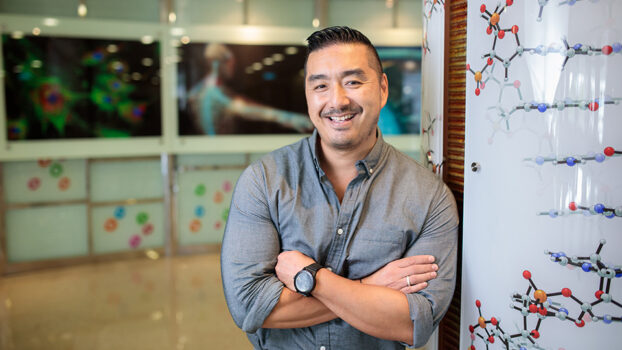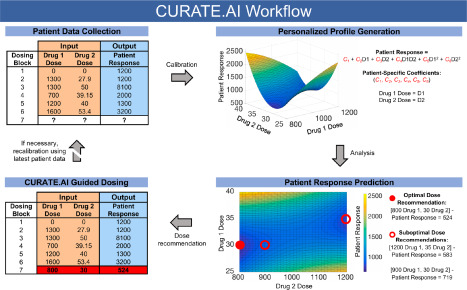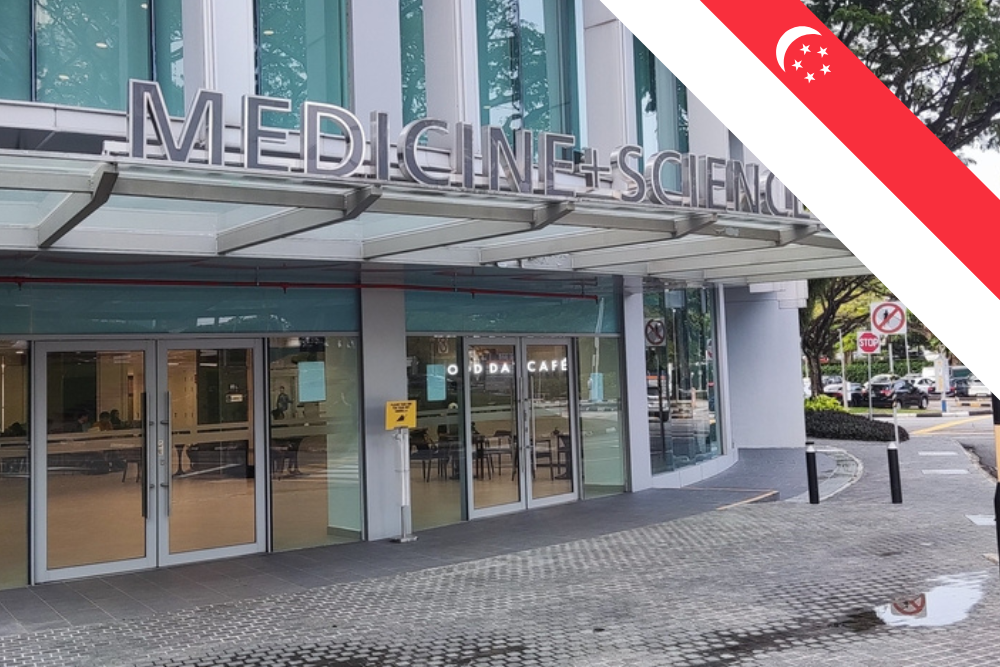In a first-of-its-kind trial, NUS researchers used an AI platform to personalise treatment for a rare blood cancer patient, delivering remarkable improvements while reducing costs and side effects.
Researchers at the National University of Singapore (NUS) have pioneered the use of an artificial intelligence platform, CURATE.AI, in a groundbreaking clinical trial to treat Waldenström macroglobulinemia, a rare blood cancer. The trial, co-led by Professor Dean Ho, Director of the Institute for Digital Medicine (WisDM) at NUS Medicine, is the first to use AI to personalise treatment for this disease.

Prof. Dean Ho, Director of the Institute for Digital Medicine (WisDM) at NUS Medicine (Image: NUS Medicine)
“Our study highlights the effectiveness of using small data to treat extremely rare diseases—addressing the gaps where traditional big data methods fall short.” Prof Ho explained.
The AI platform dynamically adjusts drug dosages based on the patient’s real-time responses, providing a tailored approach to treatment without relying on large data sets.
Watch now: Detection, Diagnosis & Management of GI Cancers in Asia | Dr Benjamin Yip (Gastroenterologist)
Personalised, Data-Driven Treatment
CURATE.AI is an artificial intelligence tool that creates a personalised profile for each individual based on their medical data. It looks at how different amounts of the treatment (like a drug) affect specific health results for that person.
By connecting different doses of the treatment to measurable outcomes, it calibrates a unique “map” for that individual. This map can then predict how various doses may impact the person’s health status. It also recommends which dose amount is most likely to give the best outcome.

CURATE.AI-guided dosing workflow (Credits: ScienceDirect)
As the patient’s medical condition changes over time, like due to disease progression or other treatments, the profile is updated. This ensures doctors always have the most accurate information on what doses will work best as the person’s situation evolves.
CURATE.AI’s ability to personalise treatment using small datasets offers new hope for patients with rare diseases, especially in cases where large-scale clinical trials are not feasible. In this groundbreaking AI cancer treatment in Singapore, the platform adjusted the patient’s drug dosage in real time, based on how the body responded to treatment.
Since the trial began in October 2021, the patient showed significant improvement in red blood cell levels and no longer required blood transfusions. Importantly, the AI-derived dosages were lower than standard treatment regimens, helping to minimise side effects while maintaining disease control.
Watch now: Clinically Speaking | Proton Therapy Cancer Treatment with Dr Looi Wen Shen & Dr Shaun Ho
Clinical and Financial Impact of AI Cancer Treatment in Singapore
The AI cancer treatment in Singapore has not only improved clinical outcomes but also reduced treatment costs. The patient saved approximately USD 8,000 (SGD 10,500) over the first two years of treatment due to the AI-driven adjustment of drug dosages.
Speaking about the impact of CURATE.AI, Professor Dean Ho said, “No two patients are alike, and even the same patient can change over time as well. It is essential for treatment to evolve alongside the patient.”
This approach ensures that patients receive the most effective and cost-efficient treatment, tailored to their unique needs.
A New Approach to Treating Rare Cancers
The success of this AI cancer treatment in Singapore highlights the potential of CURATE.AI in managing rare diseases like Waldenström macroglobulinemia. By dynamically adjusting drug dosages, the AI platform has demonstrated the ability to improve patient outcomes while minimising side effects.
Dr Sanjay de Mel, Senior Consultant at the National University Cancer Institute, Singapore (NCIS), emphasised the importance of this personalised approach: “Achieving a good treatment response while minimising side effects is crucial when treating patients with Waldenström macroglobulinemia.”
CURATE.AI’s precision dosing helps address the variability in how different patients respond to treatments.
Expanding the AI Cancer Treatment in Singapore
The clinical trial using CURATE.AI for AI cancer treatment in Singapore is ongoing, and the platform is now open for the recruitment of new patients. As more data is collected, the research team hopes to expand the use of this AI technology to treat other rare diseases. The trial’s promising results, published in NPJ Digital Medicine, highlight CURATE.AI’s potential to transform how clinicians approach personalised treatment, especially in cases where traditional methods may not be practical due to limited patient populations.
The promising results from this AI cancer treatment in Singapore showcase the potential of CURATE.AI to revolutionise personalised medicine. As the platform gains wider use, it could reshape how rare and complex conditions are treated, offering both clinical improvements and cost savings for patients.
As Professor Dean Ho remarked, “CURATE.AI’s approach, which tailors treatment using small datasets, offers a practical solution for the urgent and challenging need of developing personalised strategies for rare diseases.”

